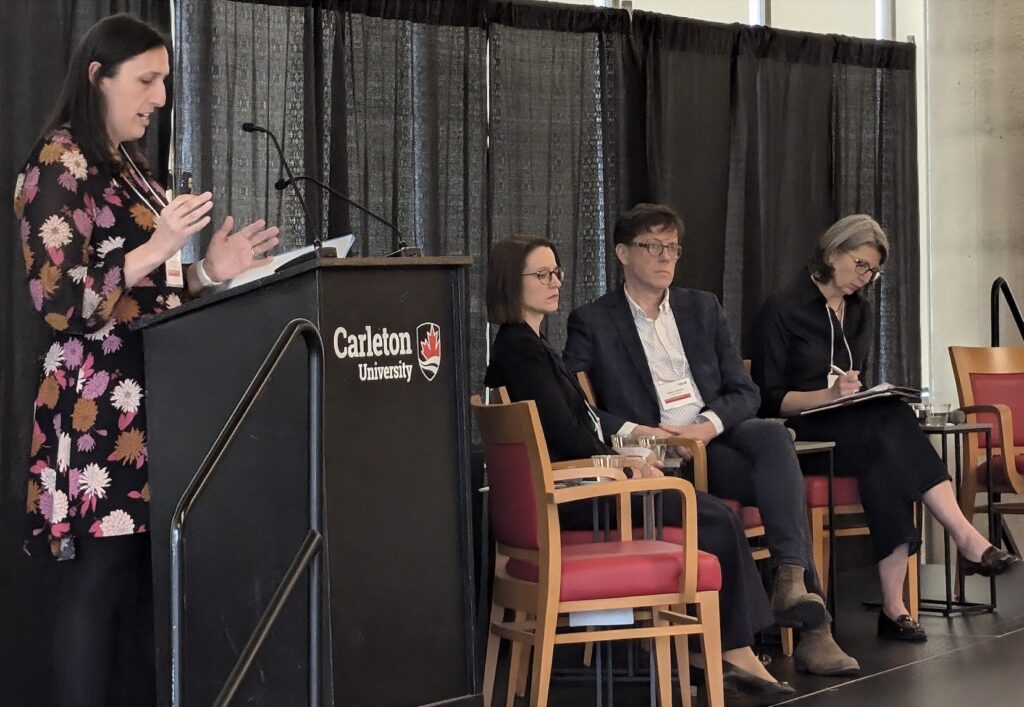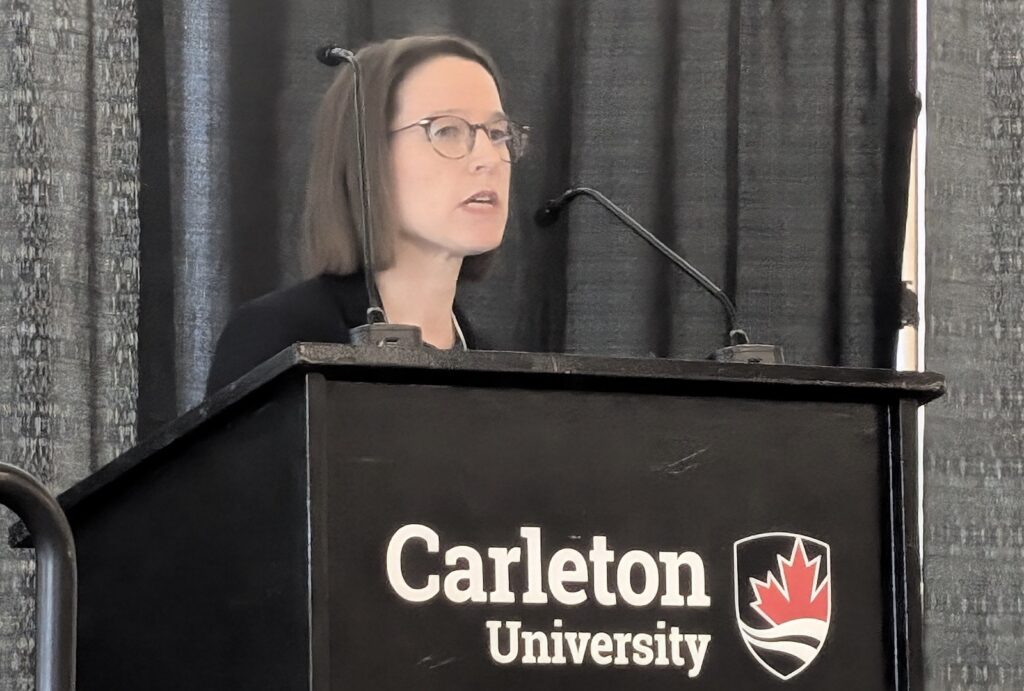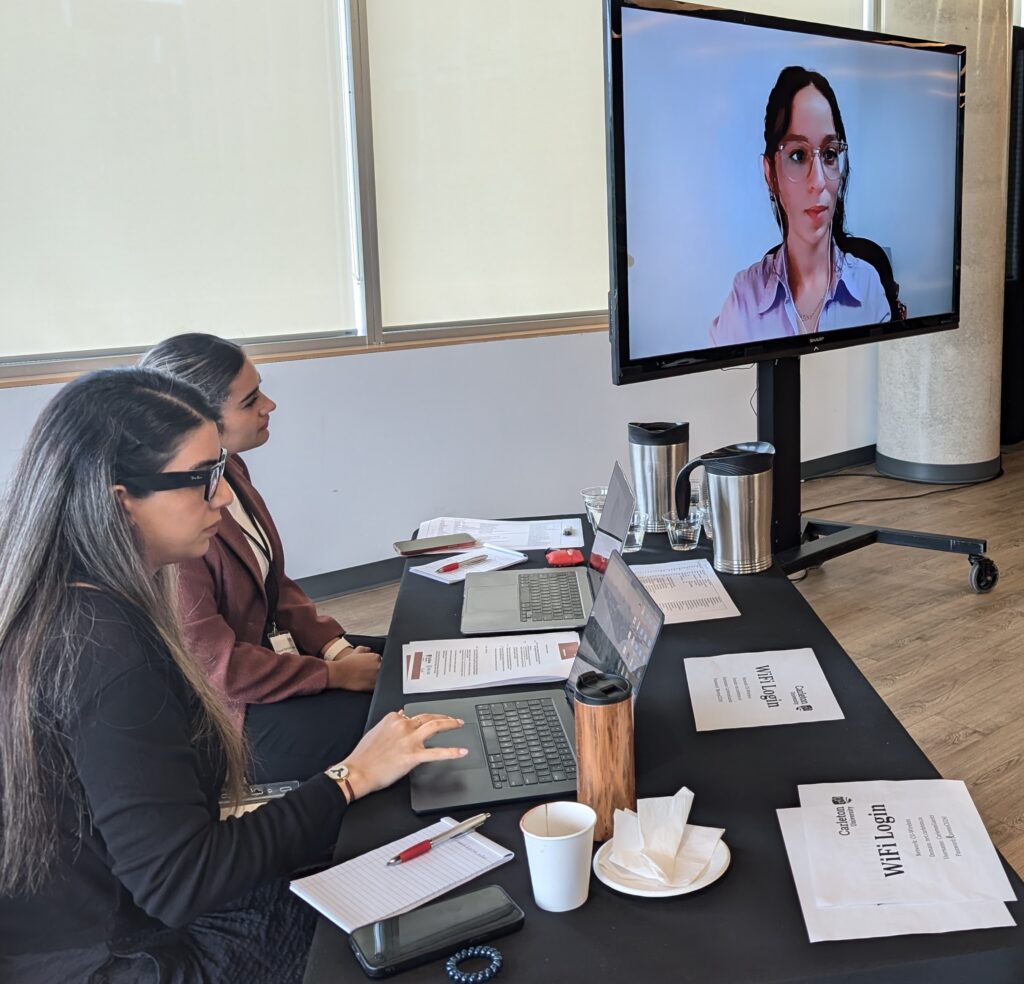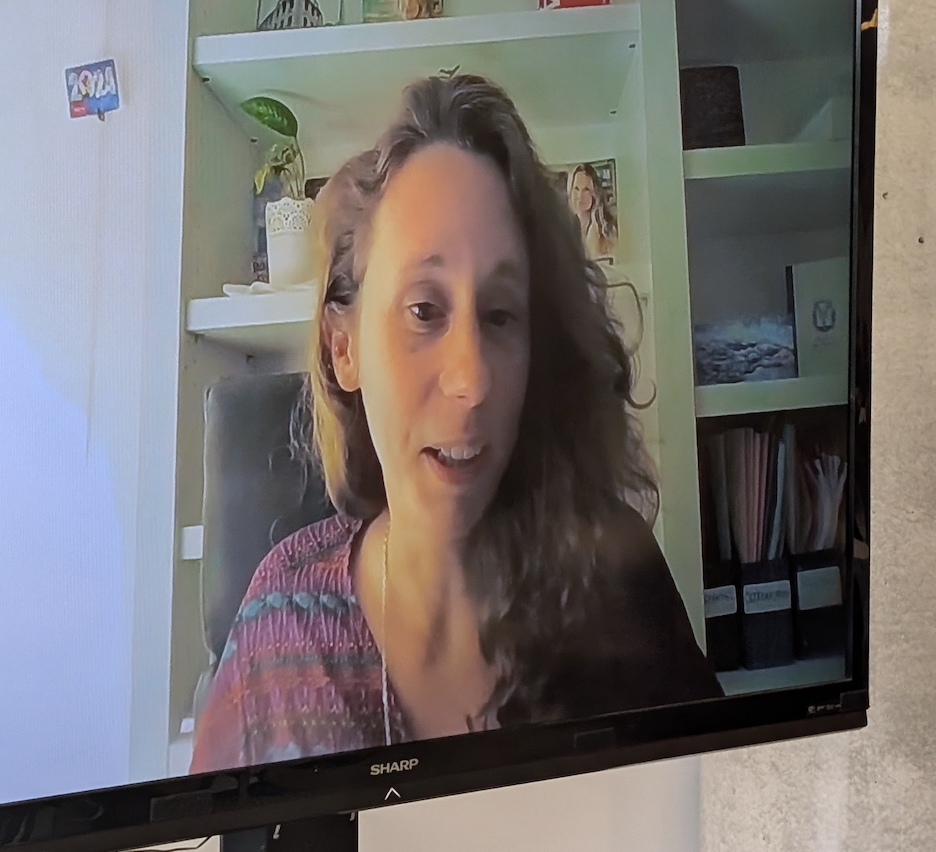
“It might take a village to raise a child,” Dr. Maike Didero, a champion for at-risk researchers in Europe, told conference-goers at the Safe Havens and Knowledge Networks conference on May 22 at Carleton University. But, she added, it takes “a very dedicated team of people to help a scholar restart his or her career.”
With those words, Didero — a social geographer in Germany and program manager at the Berlin-based Alexander von Humboldt Foundation — encapsulated the worldwide efforts of scholars-at-risk organizations while underlining the national and international responsibility to protect and support academics, activists and artists displaced from their home countries.
Didero was one of four international panelists who joined in a hybrid in-person/video discussion moderated by Carleton University professors Andrew Johnston and Christine Duff, co-chairs of Scholars at Risk Carleton.

The conversation highlighted the work of key scholar protection programs in the global movement supporting at-risk and displaced researchers and others seeking safe havens and employment opportunities abroad. Along with Didero, the panel included Marion Gués Lucchini, advocacy and international affairs officer with France’s PAUSE program, via video link; Phoebe Alpern, program associate for membership and university relations at the New York-based Scholars at Risk Network, also via video; and Danielle Alperin, assistant director at the Institute of International Education Scholar Rescue Fund, also based in New York.
Each representative gave a presentation on the model, practices and successes of their respective programs, along with the challenges they face. The session was an opportunity for conference attendees to peek under the hood to see how scholars-at-risk programs work and to exchange knowledge about both effective advocacy efforts and areas to improve.

Didero explained that the main mission of the Humboldt Foundation “is to sponsor researchers from all around the world with long-term research fellowships.” She also works with Inspireurope+, the Initiative to Support, Promote and Integrate Researchers at Risk in Europe.
When working with at-risk scholars, dangerous situations can arise suddenly, she said. Didero recalled a time when a scholar reached out to seek an urgent placement back in Germany because of unanticipated threats from the Iranian government. “In theory, we all know that emails are postcards we send around,” she observed. “But when you actually realize that the postcard you’ve been sending out has been intercepted by the wrong people and they have been acting on it, that’s a very chilling moment.”
Situations like these are why the foundation’s Philipp Schwartz Initiative exists to give researchers at risk financial and institutional support, said Didero. “The Philipp Schwartz Initiative offers fellowships for 24 months, fully funded and extendable for a third year if co-funding can be found,” she explained. Those eligible for fellowships are post-doctoral candidates up to senior professor.
‘In theory, we all know that emails are postcards we send around. But when you actually realize that the postcard you’ve been sending out has been intercepted by the wrong people and they have been acting on it, that’s a very chilling moment.’
— Dr. Maike Didero, program manager, Inspireurope+, Alexander von Humboldt Foundation
Lucchini outlined the sheer scope of the scholars-at-risk crisis from the PAUSE perspective. The program supports doctoral students, researchers, professors and, since 2021, artists displaced from nations with oppressive regimes. The French program serves nearly 700 scientists and artists spanning 44 countries of origin. For Gues Lucchini, these numbers “really reflect the global nature of the crisis.”
Danielle Alperin said the Scholar Rescue Fund is also experiencing unprecedented requests for assistance.
“There are more threatened, displaced scholars today than at any point in history,” said Alperin. “This is reflected in our application numbers. We’ve seen hundreds of applications every year. The demand far exceeds our limited resources.”
As part of the SRF’s support package, which includes a US$25,000 fellowship grant renewable for a second year, the program also provides US$5,000 in relocation funding.

“I think this (relocation fund) is a great example of one of the ways the program was adapted to the needs we were actually seeing,” said Alperin, “which is that fellows — either due to prolonged periods of displacement or longstanding blacklisting in their nation’s academy — didn’t have the financial resources to get to the host campuses.”
Funding is vital for these programs to continue the work of supporting at-risk researchers.
Alpern explained that the Scholars at Risk Network leverages collaboration with other SAR campuses as well as international organizations and not-for-profits to secure funding and promote knowledge-sharing opportunities. The organization’s international advisory committee is key to building these connections. “There’s a high degree of collaboration amongst institutions,” said Alpern, noting that this is vital to “really ensure we’re not constantly re-inventing the wheel when we do this work.”


